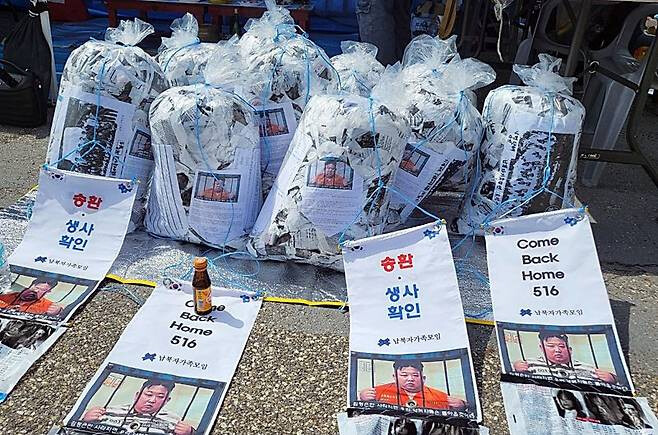
PAJU, South Korea – Paju City, a border region with North Korea, has announced its intention to sue and file criminal charges against the Abductees' Families Association following a clandestine operation to send anti-Pyongyang leaflets across the border. The incident, which occurred in the early hours of April 27th, has prompted strong condemnation from local authorities, who accuse the activists of violating safety regulations and jeopardizing the security of residents.
In an emergency meeting held on April 28th, Paju City officials resolved to take legal action against five individuals, including Choi Seong-yong, the prominent leader of the Abductees' Families Association. The charges will be filed under the Framework Act on the Management of Disasters and Safety, as the city had previously designated the area, including Imjingak Peace Land, as a danger zone where such activities are prohibited.
According to city officials, the group of five activists stealthily launched eight leaflets into North Korean territory at approximately 00:20 AM on Saturday. The launch point was reportedly behind the fence of Imjingak Peace Land in Munsan-eup, a sensitive area near the heavily fortified border.
Paju City is demanding a thorough investigation by the Gyeonggi Special Judicial Police into the incident. Furthermore, the city is seeking stringent measures, including entry bans and forced eviction from the designated danger zone for Choi Seong-yong and his associates. Separately, Paju will also pursue legal action with the police, alleging violations of the Aviation Safety Act, which governs the launching of objects that could pose a risk to aircraft.
The city claims that the latest leaflet drop was a direct breach of a prior commitment made by Choi Seong-yong and his group. Following a thwarted attempt to release leaflets at Imjingak on April 23rd, the activists had reportedly assured law enforcement and city officials that they would refrain from conducting any further surprise launches. Paju officials expressed outrage that this promise was seemingly disregarded, with the activists carrying out their operation under the cover of darkness.
Under South Korean law, violating prohibitions within a designated danger zone carries significant penalties, including imprisonment for up to one year or a fine of up to 10 million won (approximately $7,300 USD).
Kim Kyung-il, the Mayor of Paju City, issued a stern warning, emphasizing the city's unwavering stance against such actions. "We cannot compromise on actions that endanger the safety of Paju citizens and the people of South Korea by scattering anti-North Korea leaflets," Mayor Kim stated. "We will hold those responsible for this leaflet distribution legally accountable and will employ all possible measures, including entry bans for individuals related to the Abductees' Families Association, to prevent future leaflet drops."
The incident underscores the ongoing tension surrounding the issue of civilian-led information campaigns directed towards North Korea. While activists argue that these efforts are crucial for disseminating information and promoting human rights within the isolated nation, authorities in border regions express concerns about potential North Korean retaliation and the safety of their residents.
The South Korean government has historically maintained a delicate stance on the issue, balancing freedom of expression with security concerns and inter-Korean relations. However, residents in border areas like Paju have increasingly voiced their opposition to such activities, citing heightened security risks and the potential for escalating tensions with the North.
The legal action pursued by Paju City marks a significant step in asserting local authority over cross-border activities deemed detrimental to public safety. The outcome of the lawsuit and the police investigation will likely have implications for future attempts by civilian groups to send information into North Korea from the heavily militarized border region. The case is expected to draw national attention, highlighting the complex interplay between freedom of expression, national security, and the safety of border communities in the divided Korean Peninsula.
[Copyright (c) Global Economic Times. All Rights Reserved.]






























